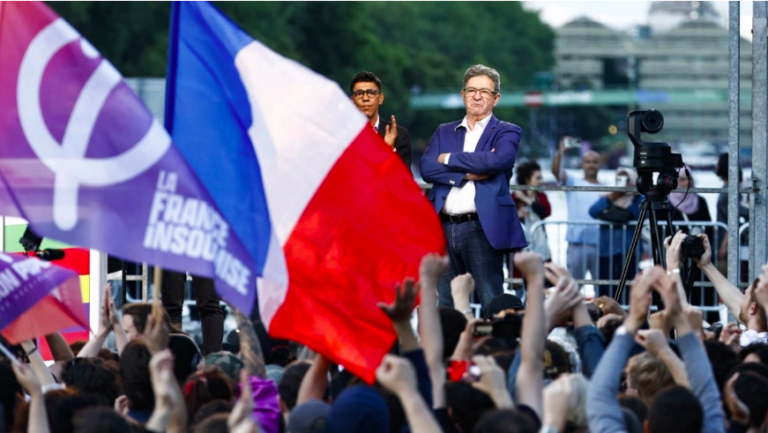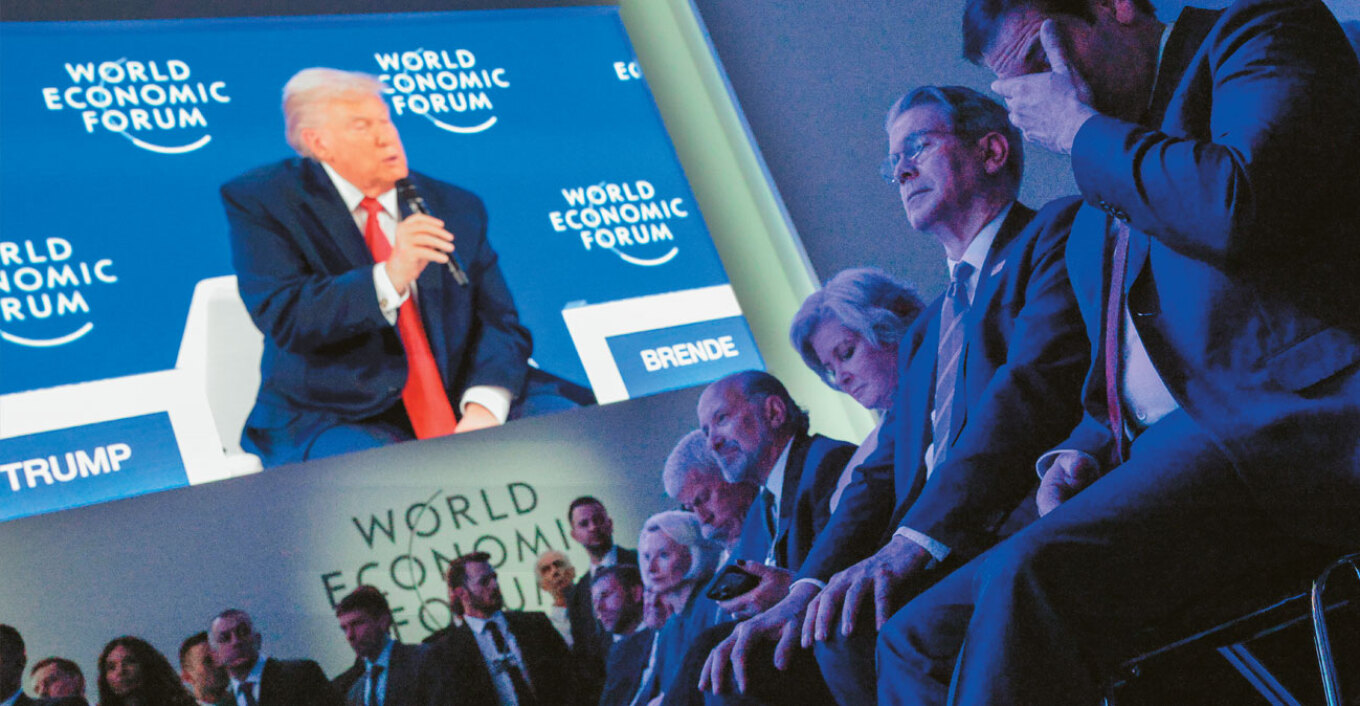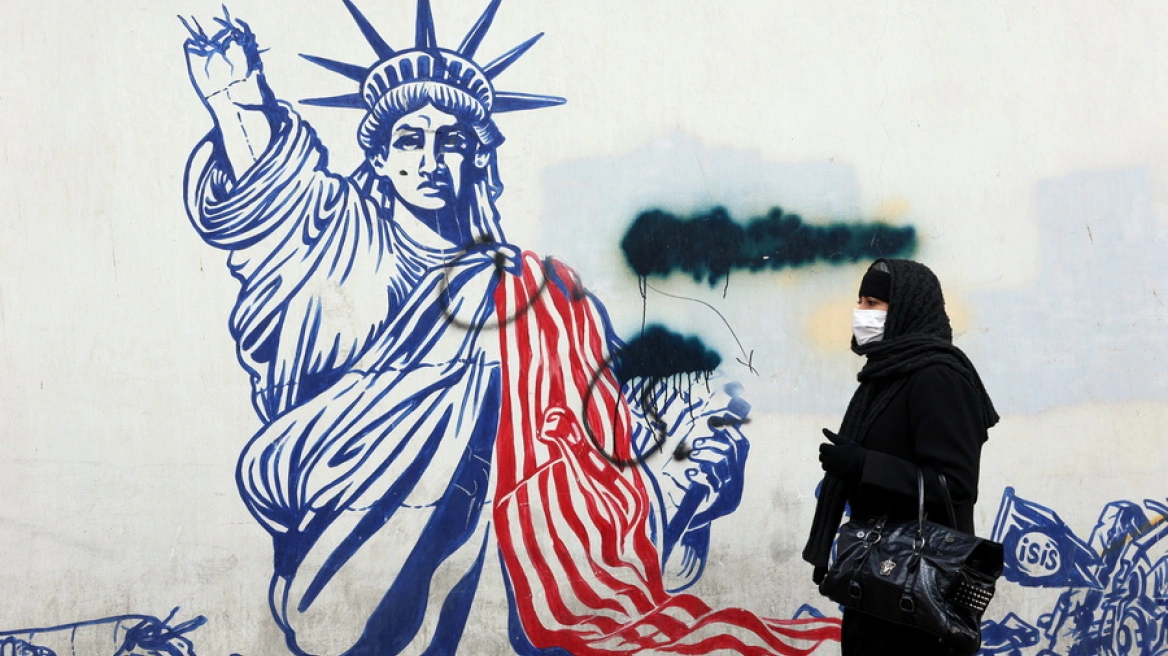Turn of Events in France: Left Triumphs in Runoff Elections
“Massive surprise.” These two words describe the left’s triumph tonight in the second round of elections for the French National Assembly. Marine Le Pen’s far-right formation, which had won the first round and was expected to “cruise” to victory, was essentially crushed, ending up in third place behind Emmanuel Macron’s party.
The victory of the so-called democratic front, the collective effort of mainstream political parties and voters to prevent the far-right from winning the elections, involved candidates in constituencies with 3 or 4 finalists stepping down in favor of the strongest opponent to the far-right or parties urging their voters to support the opponents of the far-right. This victory is just the beginning.
France is now entering a period of uncertainty, if not ungovernability. This period of crisis is quite different from what was expected, as no poll predicted a loss for RN.
Revised exit polls after the latest results show that the New People’s Front, consisting of five leftist and ecological parties, is projected to win 171 to 187 seats, short of the 289 needed for an absolute majority in the French National Assembly. President Macron’s Ensemble is predicted to win 152 to 163 seats, exceeding all expectations, while Marine Le Pen’s far-right National Rally (RN) comes third with 134 to 152 seats. This is a defeat compared to the first round but also a victory, considering they won 89 seats in the 2022 elections.
How Did We Get Here?
Macron “gambled” by calling early elections after losing the European elections and was widely criticized, especially after the first round. However, his political maneuvers after the first round, where Macron managed to stay “alive,” paid off. With more than 200 candidates withdrawing from the second round to support the strongest candidates against the far-right, this gamble proved effective. Consequently, his gamble with early elections seems to have partially worked, keeping the far-right away from power.
On the other hand, this has also plunged France into unprecedented political chaos, as Macron’s party lost about 100 MPs from its current strength in Parliament.
Currently, France appears ungovernable. With no party close to achieving a majority, the French National Assembly seems paralyzed, divided among three blocs with significant, unbridgeable gaps not only in their political direction but also on fundamental governance issues, from economic policy to relations with the EU, the stance on the Ukraine-Russia war, and immigration policy.
What’s Next?
Political analysts agree that France has already stepped into the unknown, making it nearly impossible to predict the political future of the country. The only certainty is that, at least in the short term, the far-right will not govern, and we will likely see a shift of political power from the Presidential Palace to the Parliament.
Government Scenarios
Possible scenarios for the next day after the Left’s victory in the French elections include:
- Coalition Government: Potential alliances between left-wing and centrist parties to form a stable government.
- Minority Government: Macron’s Ensemble could try to govern without a majority, seeking support on a case-by-case basis.
- Political Stalemate: Ongoing gridlock and inability to pass significant legislation, leading to potential new elections.
Results in France show Jean-Luc Mélenchon’s party in the lead, Emmanuel Macron’s Ensemble in second, and Marine Le Pen’s far-right National Rally in third. In his initial statements, the leader of the winning party, Mélenchon, requested the right to govern, highlighting the negative impact on Macron’s party.
According to the latest Ipsos estimates for TF1-LCI, the New People’s Front will win between 188 and 199 seats, potentially bringing the Left back to power in the coming weeks. Ensemble is projected to win between 135 and 169 seats, while the National Rally is expected to secure between 135 and 143 seats.
Mélenchon’s First Statements
Jean-Luc Mélenchon, whose party leads according to exit polls, called for the resignation of Prime Minister Gabriel Attal. Mélenchon emphasized that Macron must acknowledge his defeat and allow the New People’s Front to govern. He stated, “Macron must admit this defeat. The Prime Minister should resign. He never received a vote of confidence from the National Assembly but instead a massive vote of no confidence from the public.”
Mélenchon added, “A wonderful wave of citizen mobilization seems to have prevailed. Our people clearly rejected the worst option. The National Rally is far from obtaining an absolute majority.” He concluded, “The will of the people must be respected. No other combination will be acceptable. The verdict is clear: Macron’s defeat is confirmed.”
Prime Minister Gabriel Attal’s Resignation
Prime Minister Gabriel Attal announced his resignation, stating, “I put my resignation at the disposal of Emmanuel Macron. No party has won an absolute majority.” He added that it was an honor to serve and acknowledged the political shift, noting, “I warned of three dangers: an absolute majority for the New People’s Front, the National Rally, and the collapse of our ideas and values. These three dangers were excluded by the French people. No absolute majority can be dominated by the extremes.”
Attal also said, “The political movement I represented is alive and well. We held our ground and remained steadfast. Since my party does not have the majority, in line with democratic tradition, tomorrow morning I will submit my resignation to the President. I will perform my duties as required.”
He concluded by emphasizing, “A new era begins for our nation. Our responsibility is enormous. Wherever I am, I will always aim to calm, unite, and act. We must accept that everything must be questioned to embody hope once again for the French people.”
In a climate of polarization and division, with 30,000 police on foot and the idea of a coalition government gaining ground, the French are heading to the polls. With obvious concern, the EU is watching the election process, fearing that a strong link in the chain of a united Europe may weaken. Polls have closed in most regions and major cities they will close at 21:00 local time.
At the moment, participation is the highest in the last four decades, since 1981, and is even estimated to reach 67.5%. France is facing the possibility of the far-right achieving either a relative or an absolute parliamentary majority as the second round of parliamentary elections takes place today.
In a climate of polarization and division, with 30,000 police on foot and the idea of a coalition government gaining ground, the French are heading to the polls. With obvious concern, the EU is watching the election process, fearing that a strong link in the chain of a united Europe may weaken.
Polls have closed in most regions and in major cities they will close at 21:00 local time. At the moment, participation is the highest in the last four decades, since 1981, and is even estimated to reach 67.5%.
The party of the 28-year-old politician won 33.4% last Sunday, which led the international media to wonder who the young man who is running for the prime ministership of France is and what the positions of “Le Pen’s Poulin” are. Macron’s centrist party took third place with 20.7%. It is recalled, however, that in many areas, leftist or centrist voters have withdrawn to weaken the extreme right.
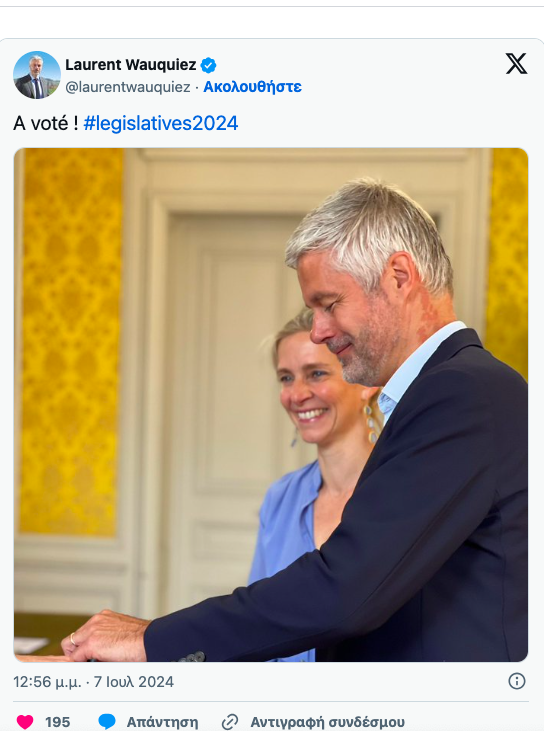
In the first round, Marine Le Pen’s National Rally emerged first with 32% of the vote, securing 76 seats out of the total 577. These seats were won by candidates who received over 51% of the vote in their respective constituencies. In the remaining districts, candidates who finished in the top two or received more than 12.5% of the registered vote advanced to the second round.
Following a strategic decision earlier this week, candidates from President Macron’s party and the left withdrew from constituencies where they had little chance of winning. As a result, most constituencies will see a head-to-head contest, often involving a far-right candidate.
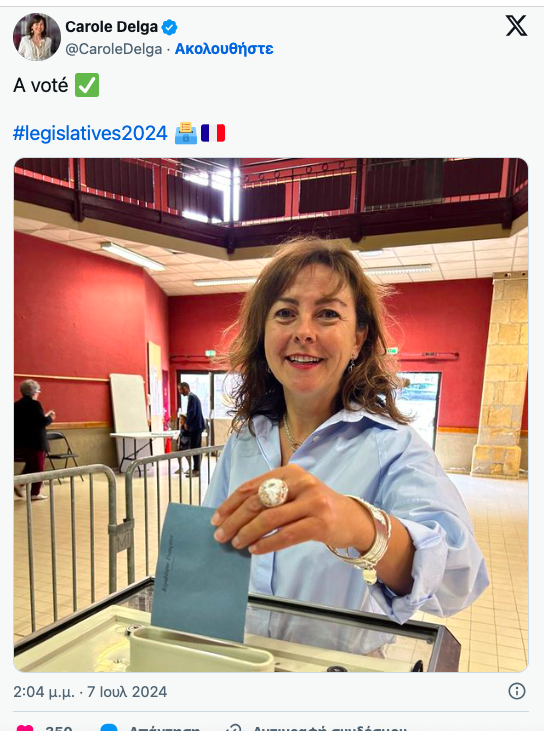
This move has significantly reduced the likelihood of Marine Le Pen’s party securing an absolute majority, according to recent opinion polls. The latest Ipsos poll published in Le Monde indicates that the National Rally and its allies could secure between 175 and 205 seats, up from 89 in 2022. The left-wing New People’s Front could win between 145 and 175 seats, compared to 150 previously, while Macron’s “Together” faction is expected to see a sharp decline from 245 seats in 2022 to between 118 and 148 seats. The Republican party and other right-wing candidates are projected to win between 57 and 67 seats.
If these estimates hold, President Emmanuel Macron will need to consider forming a government that can avoid being toppled by a vote of no confidence. Another possibility is establishing a “technical government” for at least a year, as the French Constitution prohibits President Macron from calling new parliamentary elections before the summer of 2025.
Ask me anything
Explore related questions
